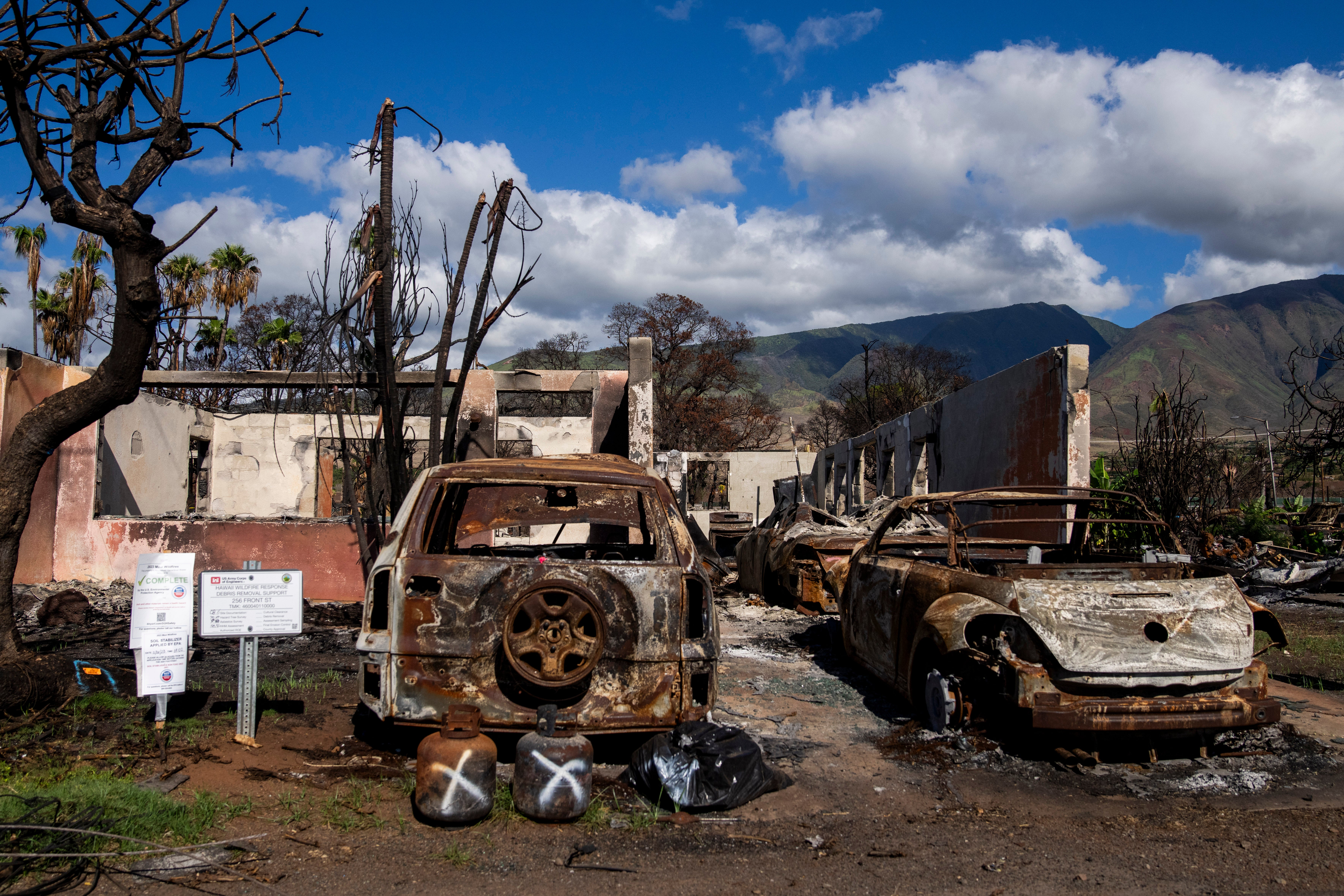Maui's mayor says Lahaina debris site will be used temporarily until a permanent spot is found
The mayor of the Hawaiian island of Maui says a site selected to hold debris from last year's wildfires that devastated the city of Lahaina will not permanently store it

Your support helps us to tell the story
From reproductive rights to climate change to Big Tech, The Independent is on the ground when the story is developing. Whether it's investigating the financials of Elon Musk's pro-Trump PAC or producing our latest documentary, 'The A Word', which shines a light on the American women fighting for reproductive rights, we know how important it is to parse out the facts from the messaging.
At such a critical moment in US history, we need reporters on the ground. Your donation allows us to keep sending journalists to speak to both sides of the story.
The Independent is trusted by Americans across the entire political spectrum. And unlike many other quality news outlets, we choose not to lock Americans out of our reporting and analysis with paywalls. We believe quality journalism should be available to everyone, paid for by those who can afford it.
Your support makes all the difference.The mayor of the Hawaiian island of Maui said Thursday that a site selected to hold debris from last year's deadly wildfires that devastated the city of Lahaina will not store it permanently.
Instead the debris will be at the Olowalu site south of Lahaina only until a permanent spot is identified and a landfill built there, Mayor Richard Bissen said during a County Council committee meeting, according to a statement from his office.
Most of the steel and concrete left behind by the fire will be recycled. Much of the debris heading for the site will be ash and small particles, which state Department of Health tests have confirmed is laden with arsenic, lead and other toxins.
Some residents have objected to using the Olowalu site, and a protest was staged last week. Environmentalists have raised concerns because it's just 400 yards (365 meters) from the coast, where a reef hosts the largest known manta ray population in the U.S. and serves as a primary source of coral larvae for waters off Lanai, Molokai and West Maui.
Bissen said the temporary site is needed so the debris can be removed from Lahaina and residents can return to their properties and rebuild. About 6,000 survivors are still staying in hotels, unable so far to find new places to live in Maui's tight housing market.
Bissen said there is an estimated 400,00 cubic yards (305,000 cubic meters) of debris that needs to be removed, equivalent to five football fields stacked five stories high.